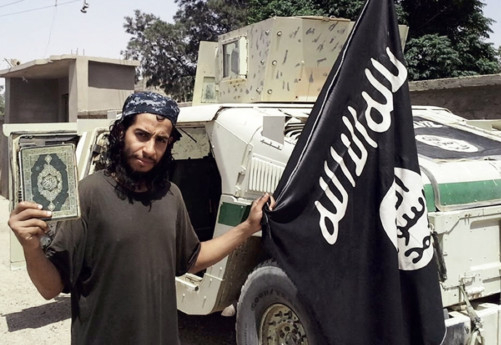
Dubai: As Daesh is take a beating in Syria and Iraq due to an escalated international military campaign to stamp out the terrorist group, there are growing concerns about militants who return to their home countries, whether in Europe or in the Middle East.
The issue was discussed recently during a closed session held by Dubai Consultancy Research and Media Centre (B’huth). The session brought in researchers from different countries, including the UAE, Saudi Arabia, US and UK to discuss fresh approaches to combatting the problem. In the past, returnees were sent to rehabilitation centres, but experts suggested instead to deal with the returnees within the community “as a whole”.
The report, which was obtained by Gulf News, emphasised the need to review religious discourse in society and refocus concepts such as ‘Islamic’ values through social media campaigns and to empower the youth in society through ‘positive initiatives’.
“The reality is that those who fight with Daesh were extremists even before they joined the terrorist group,” Mustafa Al Ani, Director of the Department of Security and Defence Studies at the Geneva-based Gulf Research Centre, told Gulf News.
“They joined the group as a result of their fanaticism [and did not become fanatical because they joined Daesh],” he added. “The most important way to deal with the problem is to address the root causes of their extremism.”
Many Arab countries amended their laws in the past to criminalise those who return from fighting abroad with groups such as Al Qaida, the Taliban and other Islamist militant organisations. Dozens were immediately sent to jail.
Al Ani believes that while joining Daesh is a crime, leaving the group is something good and should be dealt with accordingly. The report advised that the returnees not be isolated or treated as criminals. It stressed the importance of allowing the returnee to gain the respect of his family and society.
“If they feel guilt over their actions and want to repent and society treats them as criminals, that is a problem.” However, Al Ani believes there is a fine line to tread when it comes to receiving militants from abroad. “If you accept their repentance easily, they could take advantage of that trust and carry out attacks domestically.”
The experts recommended governments compile extensive and detailed information about each returnee.
Europe is currently facing the problem of returnees as many countries admit to a serious lack of information in their security records of citizens who join terrorist groups.
This lack of information makes it hard for countries to differentiate between those who regret their actions and those who return to carry out attacks. The most recent example of this were the attacks in the Paris on November 13 that killed 130 people. The suspected ringleader, Abdelhamid Abaaoud, a Belgian citizen with Moroccan heritage, was fighting with Daesh in Syria before returning to Europe. He was killed in a security raid five days later.
Al Ani says the militants often travel to their country of origin before they join the battlefield, which makes it difficult for European countries to collect information about them.
It is estimated that nearly 5,000 Europeans have joined Daesh. Nearly 10 per cent of Daesh militants have returned to their home countries, according to security experts’ estimates.
The current wave of radicalised militants returning is not new; it has happened in the 1980s when fighters returned from Afghanistan. However, experts believe it should be treated much differently.
“Daesh’s ideology is much different,” Hassan Abu Haniyah, an Amman-based researcher on Islamist groups, told Gulf News. “They have a different political vision than previous Islamist militant groups,” he said.
In Afghanistan, the fighters were united by a common enemy and cause, which was defeating the Soviets, Abu Haniyah explained. However, Daesh is different because they want to establish a so-called Islamic state and have already carved out a big chunk of territory in Iraq and Syria, he said. “Many of the fighters are not thinking of returning,” he said. “Their loyalty and identity form accordingly around the concept of the new state.”
Abu Haniyah believes the most important way to deal with the challenge of radicalism is to deal with its root causes. “Ideologies cannot be bombed,” he said.









